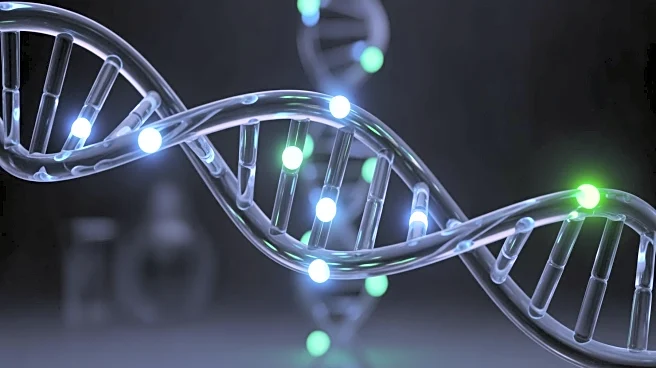What's Happening?
Recent studies have emphasized the potential of DNA methylation biomarkers in liquid biopsies for early cancer detection. These biomarkers, identified through high-throughput methods, offer a promising
approach for detecting cancer at early stages, where circulating tumor DNA (ctDNA) is minimal. The research underscores the importance of selecting appropriate liquid biopsy sources and optimizing pre-analytical procedures to ensure the accuracy of these tests. The discovery of biomarkers with zero background signals in control samples has emerged as a highly accurate method for blood-based testing, particularly advantageous for early-stage cancers. This approach differs from conventional strategies that establish thresholds based on background signals, potentially filtering out true cancer-derived signals.
Why It's Important?
The development of DNA methylation biomarkers for liquid biopsies represents a significant advancement in cancer diagnostics. These biomarkers can potentially revolutionize early cancer detection, allowing for timely intervention and improved patient outcomes. By focusing on biomarkers with zero background signals, researchers aim to enhance the sensitivity and accuracy of cancer detection tests, reducing the risk of false negatives. This approach could lead to more reliable diagnostic tools, benefiting patients by enabling earlier treatment and potentially improving survival rates. The research also highlights the importance of integrating liquid biopsy material in the discovery phase, which could streamline the transition from discovery to clinical application.
What's Next?
Future research will likely focus on refining the methodologies for identifying and validating DNA methylation biomarkers in liquid biopsies. Efforts to standardize pre-analytical variables and improve bioinformatic workflows are ongoing, with several consortia contributing to the clinical translation of these biomarkers. As sequencing technology continues to advance and costs decrease, there is optimism that sequencing-based approaches will become more prevalent in biomarker discovery. This could lead to the development of more precise and accurate diagnostic tests, further enhancing the potential for early cancer detection and personalized treatment strategies.









